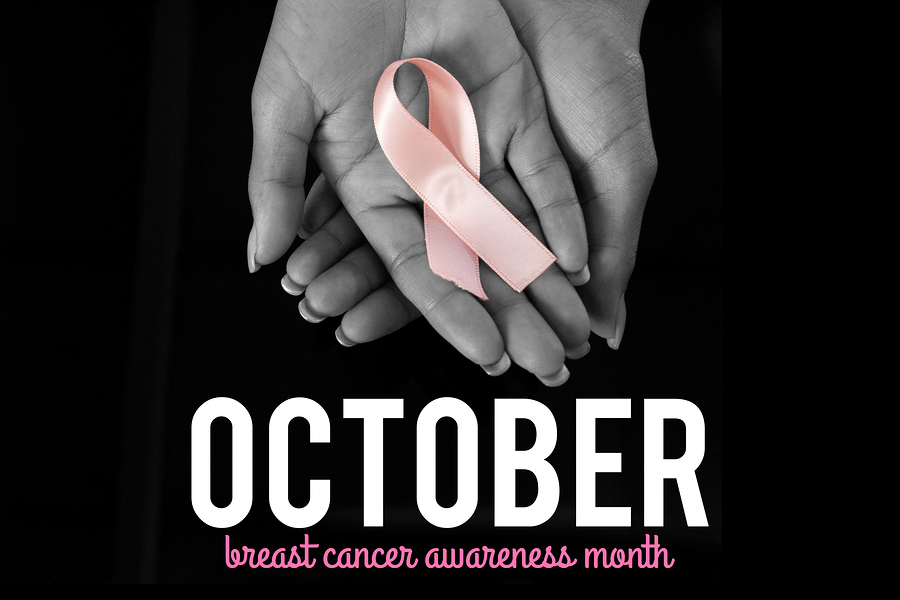

October is recognized as Breast Cancer Awareness Month, a time dedicated to education, prevention, and support for those impacted by breast cancer. While much of the conversation centers around younger women, seniors are also at significant risk and deserve just as much attention. In fact, age is one of the biggest risk factors for developing breast cancer. For older adults, awareness combined with family support and services like in-home care ensures they stay proactive and empowered when it comes to their health.
Breast Cancer Risks for Seniors
As people age, the likelihood of developing breast cancer increases. Many seniors assume that screenings are no longer necessary in later life, but medical professionals stress that risk does not disappear with age.
Some key facts include:
- Age as a factor: Women over 70 remain at risk for breast cancer, often at higher rates than younger women.
- Men can also be affected: Though less common, men—particularly older men—can develop breast cancer.
- Health history matters: Family history, previous diagnoses, and lifestyle choices can all increase risk.
Seniors should continue to discuss screening guidelines with their healthcare providers, ensuring they are taking preventive measures appropriate for their age and health status.
Common Misconceptions Among Seniors
Unfortunately, many older adults avoid screenings due to myths or misunderstandings. Common misconceptions include:
- “I’m too old for screening.” Many seniors believe mammograms or exams are unnecessary after a certain age.
- “It’s just part of aging.” Seniors sometimes dismiss lumps, pain, or changes in breast tissue as “normal.”
- “It only affects women.” Men often overlook their risk and fail to report symptoms.
These misconceptions can delay detection and treatment, leading to poorer outcomes. Education during Breast Cancer Awareness Month helps dismantle these myths and encourages seniors to take their health seriously.
The Importance of Education and Advocacy
Breast Cancer Awareness Month is more than a campaign—it’s an opportunity for seniors to receive life-saving information. Education ensures that older adults understand not only the risks but also the steps they can take to protect themselves.
Advocacy is just as important. Seniors may feel hesitant to ask questions or raise concerns with their doctors. Encouragement from families, caregivers, and trusted companions helps them speak up and take charge of their health.
How In-Home Care Supports Awareness
Awareness becomes more powerful when it is reinforced daily. That’s where in-home care plays a vital role. Caregivers provide practical, ongoing support that keeps seniors on track with preventive care.
Some examples include:
- Reminders: Helping seniors remember upcoming appointments and follow-up visits.
- Transportation assistance: Ensuring seniors get to screenings without stress.
- Encouragement: Motivating seniors to report symptoms or health changes.
- Emotional support: Offering reassurance during times of uncertainty or worry.
By combining education with daily reinforcement, in-home caregivers help seniors apply awareness to real-life action.
Symptoms Seniors Should Never Ignore
Knowing what to look for is just as important as scheduling screenings. Seniors should be aware of common breast cancer warning signs, such as:
- New lumps or thickening in the breast or underarm area.
- Changes in breast size, shape, or skin texture.
- Redness, swelling, or skin irritation.
- Persistent pain in one area of the breast or chest.
If any of these symptoms appear, seniors should contact their healthcare provider right away. Quick action can make all the difference.
Family Support Makes a Difference
Family members play a critical role in helping seniors take breast cancer awareness seriously. By staying informed, encouraging open dialogue, and offering logistical help, families ensure their loved ones are not navigating health concerns alone.
Families can also help track medical history, accompany seniors to appointments, and reinforce doctor’s recommendations at home. These seemingly small efforts go a long way in building confidence and reducing stress.
Conclusion
Breast Cancer Awareness Month is a reminder that seniors deserve attention, education, and support in the fight against breast cancer. Misconceptions and barriers can prevent older adults from receiving the care they need, but awareness helps bridge those gaps. With the encouragement of families and the ongoing guidance of in-home care, seniors can take proactive steps toward prevention, detection, and peace of mind. Awareness is the first step, but support ensures it becomes action.
If you or an aging loved one are considering in-home care in Durham, NH, please contact the caring staff at Assisting Hands Home Care – Seacoast NH today! 603-824-8200
Assisting Hands Home Care – Seacoast NH provides exceptional home care in Portsmouth, Rye, New Castle, North Hampton, Hampton, Stratham, Exeter, Durham, Dover, Seabrook, Greenland, Rochester, Hampton Falls and surrounding areas.
